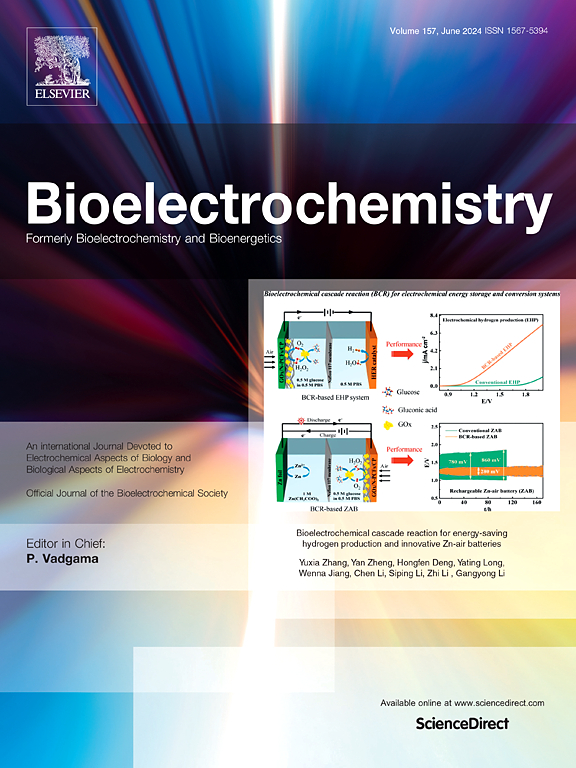Probiotics restore impaired spatial cognition and synaptic plasticity of prenatally-stressed male rats: focus on hippocampal and intestinal tight junctions
IF 3.6
2区 医学
Q1 NEUROSCIENCES
引用次数: 0
Abstract
Bidirectional communication between the gut microbiota and the nervous system founded the gut-microbiota-brain axis, substantially affects numerous vital functions of the body. Stress, as the body's natural reaction to stressful situations, in turn, affects the functioning of various organs. Through evaluating long-term potentiation (LTP) and spatial memory assessment using the Morris water maze, we aimed to examine the effect of prenatal stress on the electrophysiological and behavioral aspects of hippocampus-dependent spatial memory. The relationship of the synaptic plasticity and learning and memory with the hypothalamus-pituitary-adrenal (HPA) axis and the integrity of blood-brain and intestinal barriers were also examined. The experimental subjects were introduced to probiotic treatment to assess how the supplementation influences stress-related alterations. The prenatal stress effectively impaired both LTP occurrence and behavioral function. It also led to disruption of blood-brain and gut barriers and increased serum level of corticosterone. The probiotic supplementation positively affected the synaptic plasticity and learning and memory. It also improved the integrity of both barriers and reduced the stress hormone corticosterone. Whereas there is a reverse relationship between stress and the hippocampus-dependent spatial memory, normal stress hormone, and the integrity of intestinal and brain barriers, the probiotic supplements improve all impairments. We conclude that the HPA axis plus the blood-brain and intestinal barriers play a role in hippocampus-dependent spatial memory that are substantially affected by the beneficial gut and probiotic bacteria.
益生菌恢复产前应激雄性大鼠空间认知和突触可塑性受损:关注海马和肠道紧密连接
肠道微生物群和神经系统之间的双向交流建立了肠道-微生物群-大脑轴,实质性地影响了身体的许多重要功能。压力,作为身体对压力情况的自然反应,反过来影响各种器官的功能。通过Morris水迷宫的长时程增强(LTP)和空间记忆评估,探讨产前应激对海马依赖空间记忆电生理和行为方面的影响。研究了突触可塑性和学习记忆与下丘脑-垂体-肾上腺(HPA)轴、血脑和肠屏障完整性的关系。实验对象被引入益生菌治疗,以评估补充如何影响与压力相关的变化。产前应激有效地损害了LTP的发生和行为功能。它还会破坏血脑和肠道屏障,增加血清皮质酮水平。补充益生菌对突触可塑性和学习记忆有积极影响。它还改善了屏障的完整性,降低了应激激素皮质酮。尽管压力与海马体依赖的空间记忆、正常应激激素以及肠道和脑屏障的完整性之间存在相反的关系,但益生菌补充剂可以改善所有损伤。我们的结论是,HPA轴加上血脑和肠道屏障在海马体依赖的空间记忆中发挥作用,这在很大程度上受到有益肠道和益生菌的影响。
本文章由计算机程序翻译,如有差异,请以英文原文为准。
求助全文
约1分钟内获得全文
求助全文
来源期刊

Neurobiology of Stress
Biochemistry, Genetics and Molecular Biology-Biochemistry
CiteScore
9.40
自引率
4.00%
发文量
74
审稿时长
48 days
期刊介绍:
Neurobiology of Stress is a multidisciplinary journal for the publication of original research and review articles on basic, translational and clinical research into stress and related disorders. It will focus on the impact of stress on the brain from cellular to behavioral functions and stress-related neuropsychiatric disorders (such as depression, trauma and anxiety). The translation of basic research findings into real-world applications will be a key aim of the journal.
Basic, translational and clinical research on the following topics as they relate to stress will be covered:
Molecular substrates and cell signaling,
Genetics and epigenetics,
Stress circuitry,
Structural and physiological plasticity,
Developmental Aspects,
Laboratory models of stress,
Neuroinflammation and pathology,
Memory and Cognition,
Motivational Processes,
Fear and Anxiety,
Stress-related neuropsychiatric disorders (including depression, PTSD, substance abuse),
Neuropsychopharmacology.
 求助内容:
求助内容: 应助结果提醒方式:
应助结果提醒方式:


